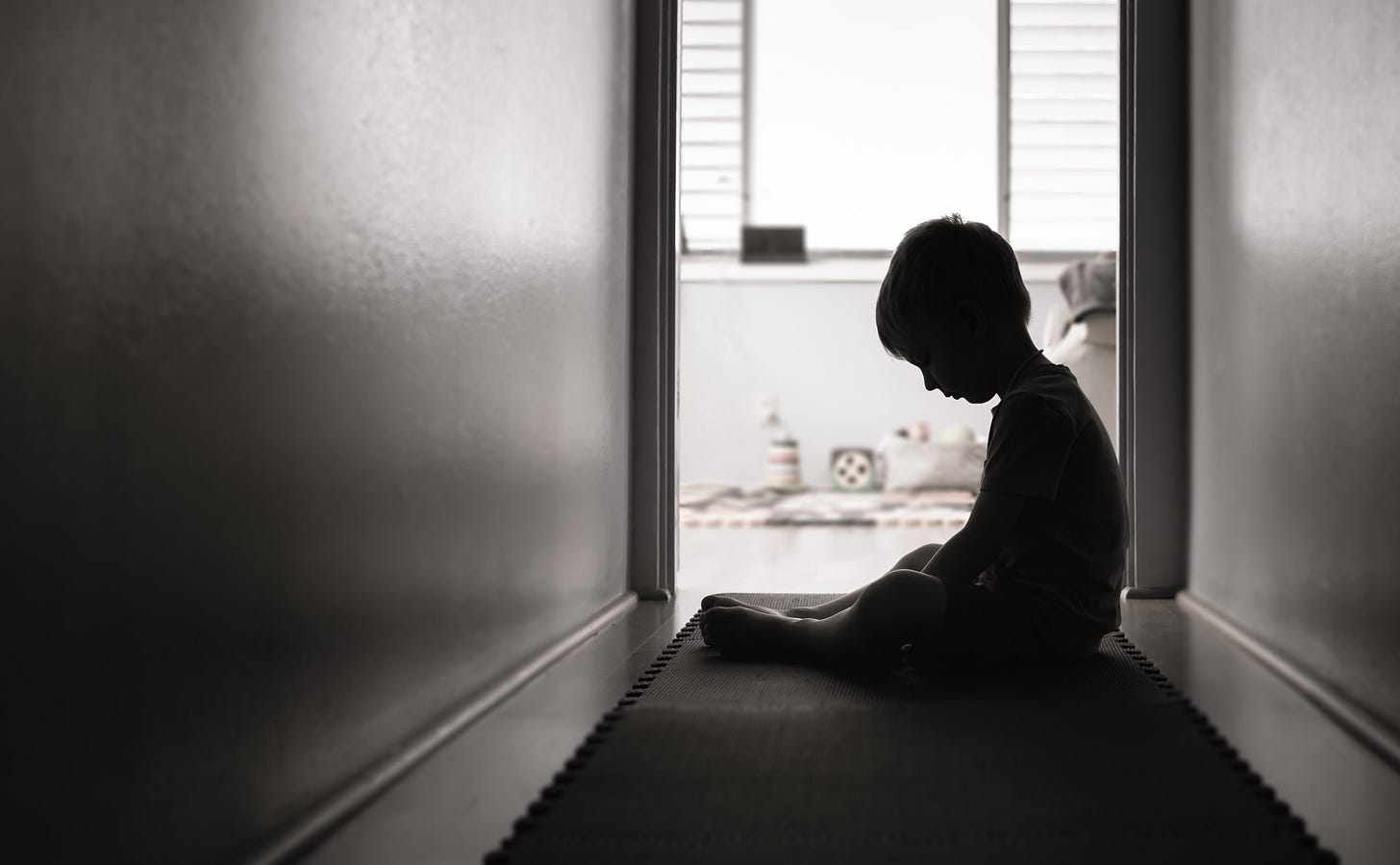The Epidemic of Male Loneliness
It starts in childhood, and it's dangerous for everyone. What can we do? Plus: Which disinfectant wipes work & are safe for kids?
Today’s essay is a long one, folks — because it’s really important. I also answer a reader question about disinfectant wipes at the bottom of the post — don’t miss it!
A few weeks ago, while driving to camp, my kids started talking about their friendships.
My 9-year-old daughter said she had lots of friends, but only a few that she would feel comfortable confiding in and telling secrets to.
My 12-year-old son said he had lots of friends, too — but then added, somewhat casually, that he didn’t have a single friend he could confide in.
I was shocked. My son has some very good friends — including one we podded with throughout the pandemic; they have had dozens of sleepovers — and I’d always assumed they shared some level of emotional intimacy. How hard was it to go through middle school without a single friend to open up to? I felt so sad for my son. Heartbroken, even.
Later, I asked him why he felt he couldn’t trust his friends enough to confide in them. He corrected me: It’s not that he didn’t trust his friends; it was just that they never talked about feelings or asked each other for advice or shared much about themselves.
Me: So if something happens at school and it’s, like, really scary or sad, and you don't know if you can tell me…. Would you feel like you had a friend you could tell?
Him: No.
A lot has been written and discussed recently about the “crisis of masculinity.” If you want to broadly explore the issue, I highly recommend this podcast interview between Ezra Klein and researcher Richard Reeves, as well as this excellent Washington Post piece by Christine Emba.
Today I’m going to zero in on the specific issue of boys and friendships. Because what my son voiced to me is, in fact, a widespread phenomenon, and it has tragic implications. In the non-profit organization Equimundo’s 2023 State of American Men survey, two-thirds of men aged 18 to 23 said they felt that “no one really knows me.”
Recent surveys find that both men and women today are suffering an epidemic of loneliness, but that the decline for men has been much steeper. Fifteen percent of men today say they have no close friendships, a fivefold increase since 1990. This helps to explain why suicide is so common among men. In the Equimundo survey, a whopping 44 percent of men reported having had thoughts of suicide over the past two weeks.
I know it can be easy to scoff at the plight of boys and men today. Why are we worrying about them when men have been top dog for so long at the expense of so many other marginalized groups? I hear that, and I’ve felt that way too. But I believe that supporting our boys in the right ways can have broad positive ramifications for society, because many of the world’s social problems are, at least in part, fueled by the toxic and gendered messages boys get throughout their lives.
Helping boys, in other words, helps everyone.



